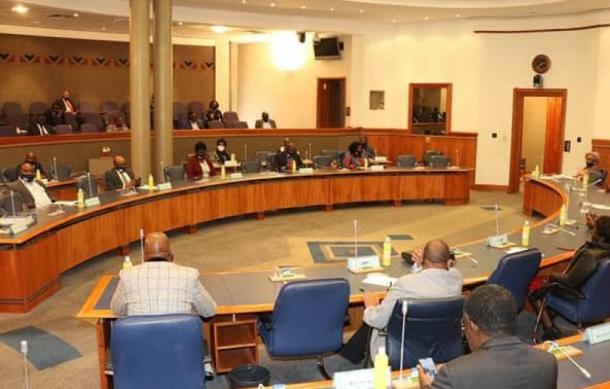
The National Council and Swapo Party Member of Parliament, George Garab, tabled the report on the 71st Westminster Seminar of the Common Wealth Parliamentary Association on effective parliaments held in March.
63 delegates from Namibia attended the seminar, which Garab said met its objectives, highlighting the importance of parliamentary scrutiny and oversight.
The aim of the seminar was to provide a highly participatory forum for delegates to exchange ideas on parliamentary practice and procedure as well as share wider experiences of how legislatures across the Common Wealth function.
"The seminar noted the importance of speakers, and in our case, the chairperson, to be impartial in order to ensure fair and balanced parliamentary proceedings and, generally, the management of the house of parliament. This is also important in reducing conflicts and promoting political inclusivity."
The seminar also emphasised the importance of the parliamentary code of conduct as an instrument, which should ensure that all members of parliament uphold the decorum of the house and generally acceptable behaviour within society.
He stressed the importance of ensuring that there is a complaint mechanism in place that members of parliament can call on should the need arise.
"In addition to representation, lawmaking is an important function of parliament. Parliamentary oversight over the work of the executive branch and its use of financial and other resources is therefore an important constitutional mandate that we should undertake at all times."
Contributing to the report, Swapo Party MP John Likando raised concerns about members who compile reports from international levels, saying they do not know how to domesticate them at a constitutional level for the ordinary Namibian.
"I feel the content of this report, honourable chair, honourable members, needs us to account at a lower level so that people have an understanding, and at times, members of the community and the general public see us as being above 200 metres above the feet, meaning we are in the plane and we come back and put in this house, and these things are not domesticated. It will always give us a problem because people do not see a hope in our results of travelling."





